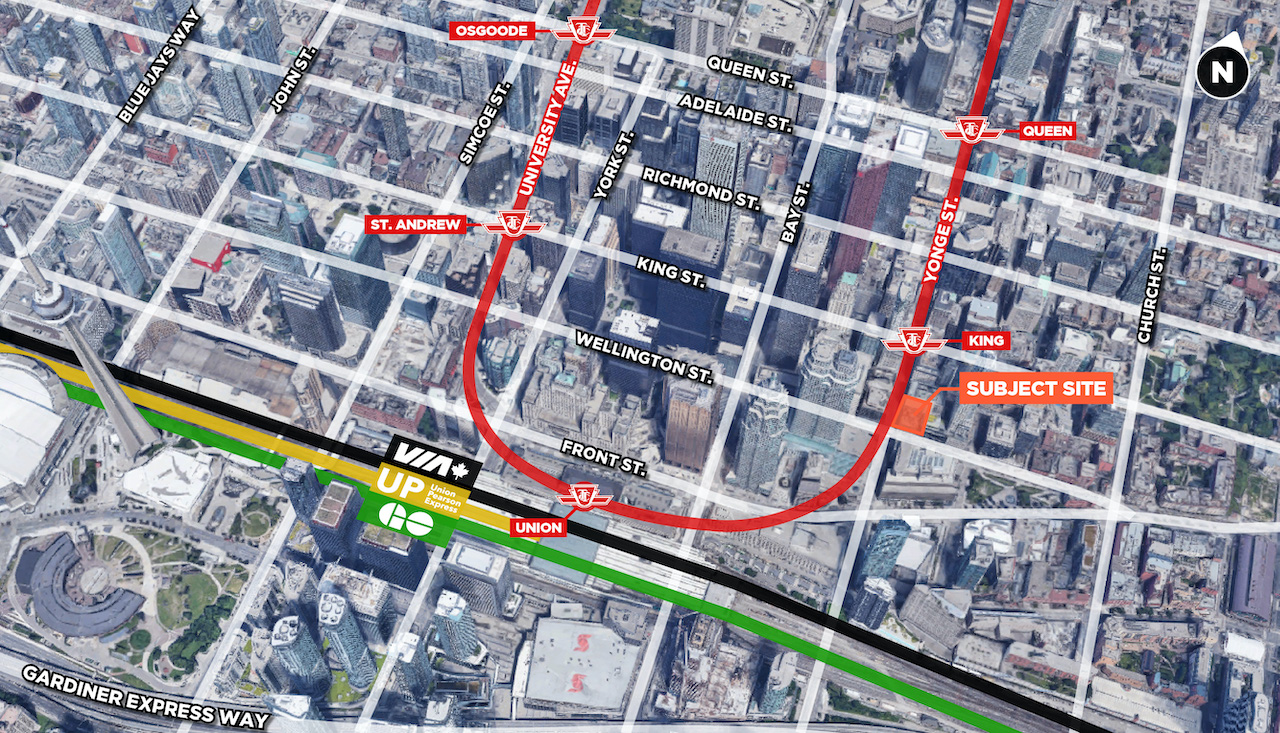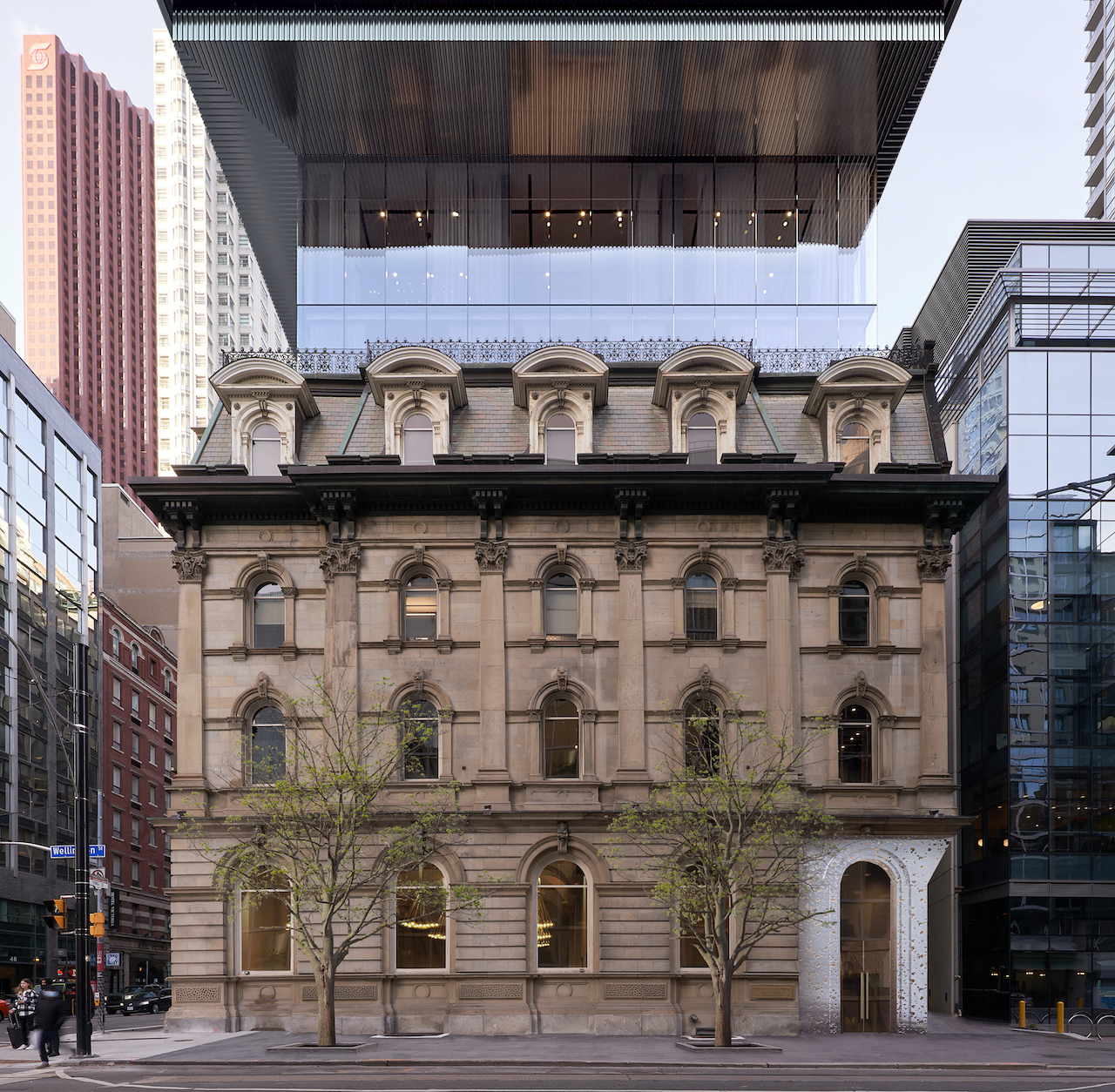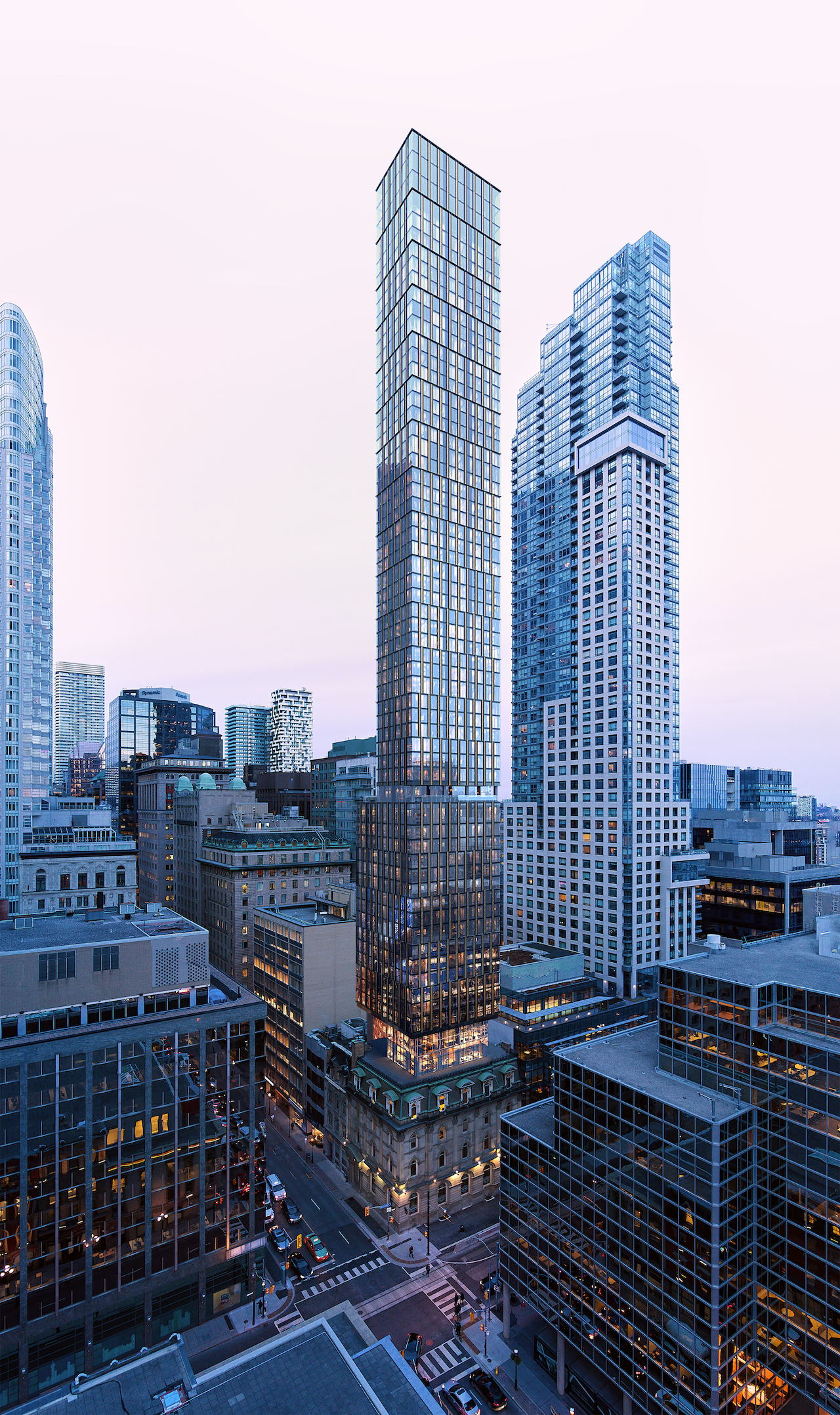A new tower is set to rise at Yonge and Wellington that will grace the skyline of Toronto’s growing Financial District. SmartLiving, the residential sub brand of SmartCentres REIT, is proposing a redevelopment at 49-51 Yonge Street. Currently home to a restaurant and offices, the pair of heritage buildings will be preserved and transformed into the base of a new 60-storey mixed-use tower designed by architects–Alliance.
Close-up of the base of the tower, image courtesy of SmartLiving.
The proposed building will contain over 1,700m² of commercial office space located on Levels 2 through 5, a slight increase from the existing commercial space currently on the site. The residential portion of the tower above will contain 258 condominium units in a variety of sizes, ranging from one to three bedrooms. Amenity spaces are proposed for the 6th, 21st, and 22nd floors, including a pair of outdoor terraces on the 22nd level. Given the site’s transit connectivity — situated between King and Union TTC subway stations and close to GO transit lines — and its Yonge Street location, there are no vehicular parking spaces proposed in the development; however, 284 bicycle spaces will be provided on two below-grade levels, promoting a more sustainable mode of transit for residents.
Heritage plays a prominent role in the proposal with an emphasis on the relationship between the new tower and its heritage base. Currently existing on the site are two heritage buildings: 49 Yonge, a 4-storey office building with a ground-floor restaurant constructed in 1875; and 51 Yonge, a 4-storey office building constructed in 1847. Focusing first and foremost on preservation, protection, and enhancement of the heritage, the team is committed to redefining a landmark property that is recognizable both on the ground and in the skyline. Both buildings’ exterior elements will be retained as part of the development, and both have informed the design of the new tower rising above.
 Context map, image courtesy of SmartLiving (Mapview data from Google LLC).
Context map, image courtesy of SmartLiving (Mapview data from Google LLC).
Working with heritage specialist GBCA Architects, the heritage exteriors will be carefully restored in situ, with the limestone cladding, decorative metal, and intricate woodwork cleaned, repaired, and replicated where necessary. The mansard roofs will be preserved, with the existing asphalt shingles replaced with more historically accurate slate shingles. Minor alterations are proposed to increase accessibility at the building entrances, and most notably on the east facade, where a one-metre widening of the laneway is proposed to facilitate safe access for loading and garbage. On the interiors, though, it is still early in the design process, SmartLiving has indicated their intent to restore and preserve the remaining heritage features, including the pressed tin ceilings, columns, and plaster and stone moldings.
architectsAlliance have taken the approach that while the design of the new tower should be contemporary and stand out, it should also be informed and influenced by the heritage structures at its base. The one proposed alteration to the heritage exterior, on the ground level along the east laneway, will be to reimagine the entrance, finished in a different material that will contrast yet complement the limestone facades. “It’s a challenge to resolve some of the complexities of a site like this one, balancing the character and beauty of the [heritage buildings] with the client’s need to achieve the occupancy of the site,” states Blair Robinson, Project Architect at architects—Alliance. “As architects, we always feel like we’re in a conversation with our predecessors.”
 Frontage along Wellington Street, image courtesy of SmartLiving.
Frontage along Wellington Street, image courtesy of SmartLiving.
The massing and form of the proposed tower is intended to spotlight the heritage buildings. The fifth and sixth floors, just above the heritage structures’ roofs, are set back from the property line and are clad with transparent glass to allow the existing heritage exteriors to maintain their presence and character at street level. Eleven metres above that, the tower projects back out above the heritage buildings and is finished with glass and bronze-coloured panels, with the massing punctuated by setbacks at the 22nd floor where the outdoor terraces are located.
 View of 49-51 Yonge looking northeast, image courtesy of SmartLiving.
View of 49-51 Yonge looking northeast, image courtesy of SmartLiving.
49-51 Yonge is located directly next to another 60-storey tower proposal at 55 Yonge. SmartLiving has initiated discussions with the development team next door to coordinate the design of the two towers for an integrated redeveloped block that enhances the neighbourhood, preserves the heritage components at street level, and adds striking new architecture to Toronto’s maturing skyline.

